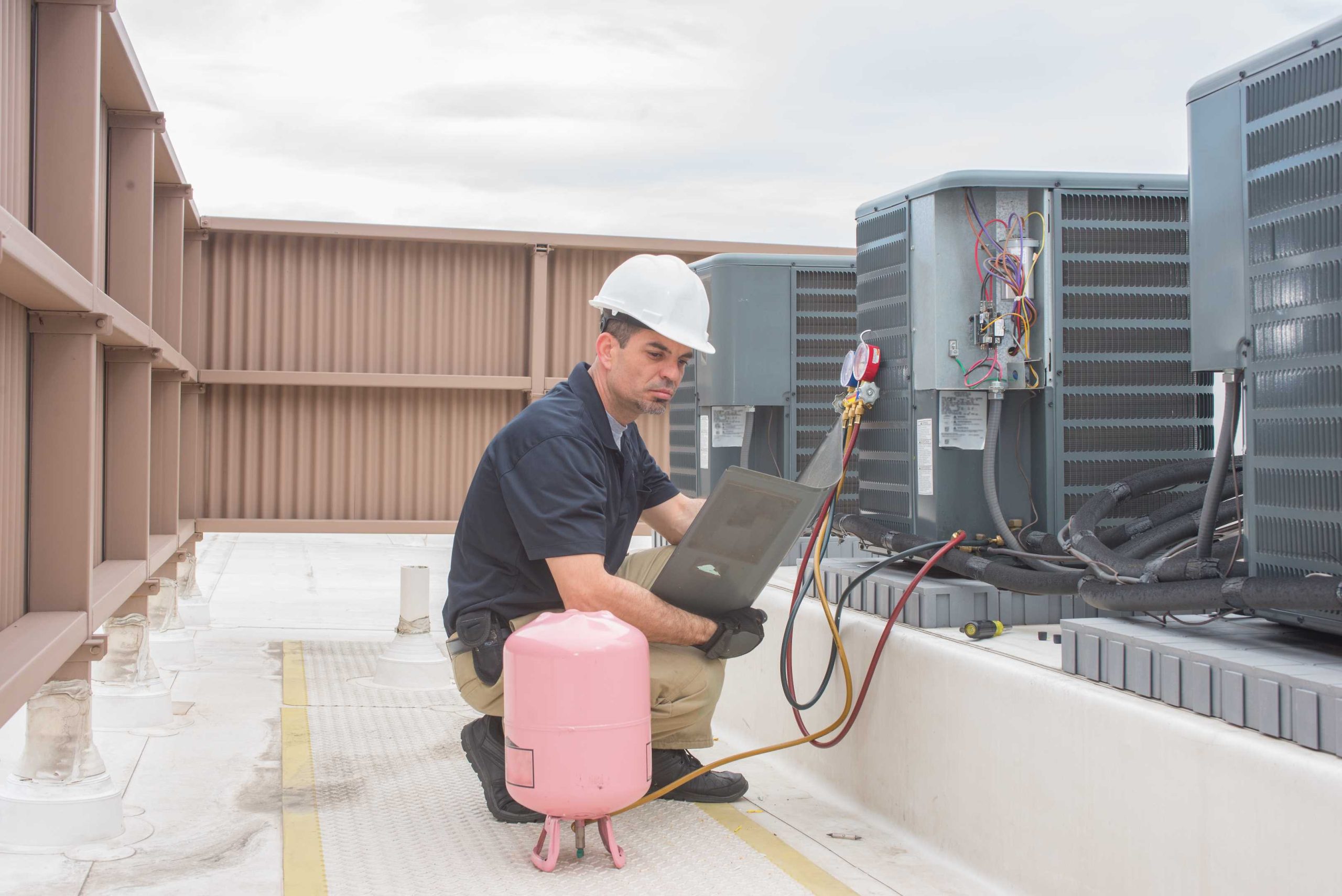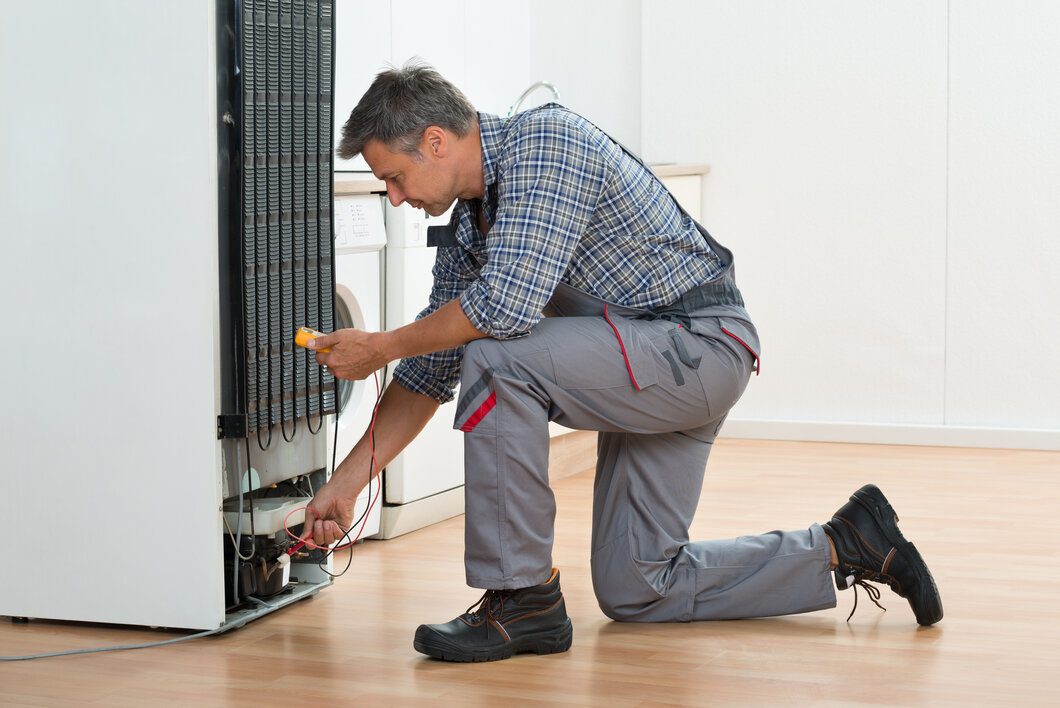HVAC Preventative Maintenance!
HVAC Preventative Maintenance!
John Parker
May 10, 2024
The dependability of HVAC (heating, ventilation, and air conditioning) systems is critical in the world of business spaces. These systems are essential to maintaining the well-being, comfort, and productivity of people who work in commercial buildings, which can range from industrial plants and healthcare facilities to office buildings and retail establishments. But if they are not properly maintained, even the most sophisticated HVAC systems can eventually malfunction. Preventative maintenance becomes the protagonist in this situation.
A proactive approach to the maintenance and repair of HVAC systems in non-residential settings is known as commercial HVAC preventative maintenance, or PM for short. It entails a number of scheduled, regular tasks meant to maintain HVAC systems in top operating condition.
Preventative Maintenance’s Advantages
Every commercial HVAC maintenance is important for HVAC to function properly, and the benefits are both immediate and long-lasting. The many advantages of putting in place a preventative maintenance program for your commercial HVAC system will be discussed in this section, along with the reasons it need to be a key component of your facility management plan.
- Savings on costs: The potential for large cost savings is one of the strongest arguments for investing in preventative maintenance. HVAC systems that are neglected are more likely to experience malfunctions and inefficiencies, which can result in expensive emergency repairs and downtime. Frequent maintenance prolongs the life of equipment by assisting in the early detection and resolution of problems.
- Energy Efficiency: In the majority of facilities, commercial HVAC systems are the biggest energy users. They eventually become less effective if they are neglected, which raises energy costs. By ensuring that your system runs as efficiently as possible, preventative maintenance lowers operating costs and energy usage.
- Extended Equipment Life: Any business that purchases HVAC equipment must make a significant investment. Maintaining a preventative maintenance routine might help your HVAC system last longer. This implies that your equipment will provide you with more dependable years of use before needing to be replaced at a high expense.
- Enhanced Indoor Air Quality: Keeping HVAC systems clean and well-maintained is essential to preserving indoor air quality. By lowering the amount of allergens, pollutants, and toxins in the air, routine maintenance helps to maintain a healthier and more comfortable atmosphere for building occupants. This includes cleaning and replacing air filters.
- Consistent Comfort: Well-maintained HVAC systems regulate humidity and temperature consistently, making your business space comfortable all year round. This is crucial in establishments like offices, retail establishments, and healthcare centers because worker comfort directly impacts output.
- Environmental Responsibilities: Installing energy-efficient HVAC systems benefits the environment in addition to your financial situation. Reducing energy use helps promote sustainability initiatives and leaves a reduced carbon footprint, both of which are beneficial to your company’s reputation and environmental compliance.
- Compliance and Warranty Requirements: For many warranties on HVAC equipment to be valid, frequent maintenance is required. If you don’t follow the prescribed maintenance schedules from the manufacturer, your warranty can be voided and you would have to pay for repairs or replacements out of pocket.
- Preventing Catastrophic Failures: Unexpected malfunctions in a business air conditioning system can be costly and disruptive. Preventative maintenance minimizes company disruptions and unforeseen costs by assisting in the identification and resolution of possible problems before they develop into catastrophic failures.

The Checklist for Preventive Maintenance
A thorough list of chores and inspections needs to be completed on a yearly basis in order to properly maintain a business HVAC system. Following a preventative maintenance schedule is crucial to the seamless functioning of your HVAC system. This section will help you plan and carry out a proactive maintenance schedule that is specifically designed to meet the needs of your business HVAC system. It includes a complete checklist of chores and activities for each season.
Spring Upkeep:
- Examine Air Filters: Change or clean your air filters at the start of the season. Airflow is restricted by clogged filters, which decreases efficiency.
- Clean and Lubricate Components: To lower friction and increase the lifespan of moving parts like fans, motors, and bearings, clean and lubricate them. Make sure the refrigerant levels are sufficient by checking them. Lower cooling capability and increased energy usage can result from low refrigerant.
- Thermostat calibration: Verify that thermostats are exact and calibrated to sustain accurate temperature regulation.
- Inspect Ductwork: Look for damage and leaks in the ducts. To stop air loss and energy waste, seal any leaks.
Summer Upkeep:
- Clean Condenser and Evaporator Coils: Unclean coils lower cooling effectiveness. To achieve the best heat transfer, clean coils both inside and outside.
- Examine and Clear Drain Lines: Water damage and the formation of mold can result from clogged drain lines. Make sure they drain correctly and are clear.
- Verify and Tighten Electrical Connections: Unsecured electrical connections might result in system failures and safety risks. Examine and tighten any loose connections.
To make sure the condensate pump in your HVAC system is operating properly and eliminating extra moisture, test it.
Fall Upkeep:
- Replace or Clean Air Filters: Carry out the spring maintenance checklist’s air filter inspection, replacement, and cleaning procedures once more.
- Clean and Lubricate Components: To get the system ready for the heating season, go over cleaning and lubricating of the moving parts one more time.
- Examine Gas Connections (if Applicable): Make sure gas connections are tight and look for leaks in systems that run on propane or natural gas.
- Examine Ignition System: Make sure the heating system’s ignition system ignites correctly and effectively by testing it.
Winter Upkeep:
- Assess Air Filters: Recheck air filters and, if needed, replace or clean them.
Monitor Belts and Pulleys: Examine belts for wear and tension, and check the alignment of pulleys. Replace any broken parts. - Check the combustion components, if necessary: Examine the efficiency and safety of combustion parts, such as heat exchangers and burners, in heating systems.
- Adjust Thermostats: To guarantee precise temperature management throughout the heating season, double-check the thermostat calibration.
- Monitor Overall System Performance: During the winter, pay particular attention to the HVAC system’s overall performance and take quick action to resolve any odd noises, smells, or inefficiencies.
Conclusion:
HVAC preventative maintenance is extremely important for hvac to operate efficiently. Over time, routine maintenance of your HVAC system can save you money by averting costly repairs. Your technician can identify any minor issues during your yearly checks and address them before they become more serious issues. Additionally, your specialists will check for any wear and tear that requires repair.




